 W
WYiddish theatre consists of plays written and performed primarily by Jews in Yiddish, the language of the Central European Ashkenazi Jewish community. The range of Yiddish theatre is broad: operetta, musical comedy, and satiric or nostalgic revues; melodrama; naturalist drama; expressionist and modernist plays. At its height, its geographical scope was comparably broad: from the late 19th century until just before World War II, professional Yiddish theatre could be found throughout the heavily Jewish areas of Eastern and East Central Europe, but also in Berlin, London, Paris, Buenos Aires and New York City.
 W
WShloyme Zanvl Rappoport, known by his pseudonym S. Ansky, was a Jewish author, playwright, researcher of Jewish folklore, polemicist, and cultural and political activist. He is best known for his play The Dybbuk or Between Two Worlds, written in 1914.
 W
WBoris Aronson was an American scenic designer for Broadway and Yiddish theatre. He won the Tony Award for Scenic Design six times in his career.
 W
WJoseph Barondess was an American labor leader and political figure in New York City's Lower East Side Jewish community in the late nineteenth century and early twentieth century. Known as the "King of the Cloakmakers", whose union he led, he carried himself like an actor, a career he had tried but failed at before he became a garment worker and union leader. In his heyday he was in great demand at public celebrations of all sorts; as one observer of the time noted, "It was almost a pleasure to die, knowing that Barondess would arrange the rites."
 W
W"Bei Mir Bistu Shein" is a popular Yiddish song written by Jacob Jacobs (lyricist) and Sholom Secunda (composer) for a 1932 Yiddish language comedy musical, I Would If I Could, which closed after one season. The score for the song transcribed the Yiddish title as "Bay Mir Bistu Sheyn". The original Yiddish version of the song is a dialogue between two lovers. Five years after its 1932 composition, the song became a worldwide hit when recorded under a Germanized title as "Bei mir bist du schön" by The Andrews Sisters in November 1937.
David Beigelman (1887–1945), also known as Dawid Bajgelman and Dawid Beigelman, was a Polish violinist, orchestra leader, and composer of Yiddish theatre music and songs.
 W
WMoishe Broderzon was a Yiddish poet, theatre director, and the founder of the Łódź literary group Yung-yidish.
 W
WJoseph Brody (1877-1937) was an American Jewish composer who wrote prolifically for the Yiddish theatre as well as liturgical Jewish works. He taught George Gershwin and was a friend of Yossele Rosenblatt. His daughter Estelle Brody was a film actor.
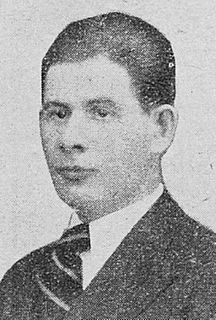 W
WIon Călugăru was a Romanian novelist, short story writer, journalist and critic. As a figure on Romania's modernist scene throughout the early interwar period, he was noted for combining a picturesque perspective on the rural Jewish-Romanian community, to which he belonged, with traditionalist and avant-garde elements. His early works, including the novel Copilăria unui netrebnic, bring together elements of Social Realism, Surrealism and Expressionism over a conventional narrative line based on oral tradition and the classics of Romanian literature. Călugăru, who moved from the moderate Contimporanul magazine to the Surrealist platform unu, was also one of the main contributors to Integral, a tribune for avant-garde literature in general. Although publicly known for his socialist convictions and his far left inclinations, he was, through his position at Cuvântul newspaper, present in the proximity of fascist circles, and had an ambiguous attitude toward his employer, the far right thinker Nae Ionescu.
 W
WNellie Casman (1896?–1984) was an actress and singer in Yiddish theater. She was born in Proskurov, Russia, and moved to the United States in the early 1900s.; She lived in Philadelphia where her father was a hazzan. Casman showed such talent as an actress when a child, the actress Rose Rubin took her into a professional Yiddish theater, where she began to play child roles in 1910.
 W
WA coupletist (kupletist) is a poet, singer, or actor who specializes in couplets – wittily ambiguous, political, or satirical songs, usually in cabaret settings, usually with refrains, generally used as a transition between two cabaret numbers.
 W
WFidler Afn Dakh is an adaptation of the musical Fiddler on the Roof translated and adapted by Shraga Friedman. The adaptation revisits the 1894 collection of Yiddish short stories on which Fiddler on the Roof is based, about Tevye the Dairyman. Friedman created the translation for a 1965 Israeli production. It was produced by the National Yiddish Theatre Folksbiene (NYTF) in New York City in 2018 and transferred off-Broadway to Stage 42 in 2019.
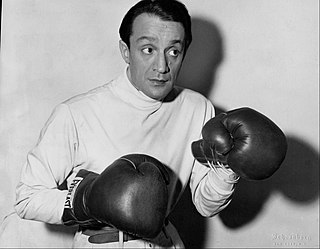 W
WLeo Fuchs was a Polish-born American actor. According to YIVO, he was born Avrum Leib Fuchs in Warsaw; according to Joel Schechter, he was born in Lwów, Galicia, then Poland, now called Lviv, Ukraine.
 W
WAbraham Goldfaden was a Russian-born Jewish poet, playwright, stage director and actor in the languages Yiddish and Hebrew, author of some 40 plays. Goldfaden is considered the father of modern Jewish theatre.
 W
WJennie Goldstein was an American theater actress and singer.
 W
WPeretz Hirshbein was a Yiddish-language playwright, novelist, journalist, travel writer, and theater director. Because his work focused more on mood than plot, he became known as "the Yiddish Maeterlinck". His work as a playwright and through his own short-lived but influential troupe, laid much of the groundwork for the second golden age of Yiddish theater that began shortly after the end of World War I. The dialogue of his plays is consistently vivid, terse, and naturalistic. Unusually for a Yiddish playwright, most of his works have pastoral settings: he had grown up the son of a miller, and made several attempts at farming.
 W
WMoses Ha-Levi Horowitz, also known as Moishe Hurvitz, Moishe Isaac Halevy-Hurvitz, etc., was a playwright and actor in the early years of Yiddish theater. Jacob Adler describes him as an "authorit[y] on dramaturgy", but also remarks that before being part of the Yiddish theater in London in the mid-1880s he had "wandered in different lands, involved himself in various undertakings, and then moved on often leaving, it is said not altogether pleasant memories behind him." He was one of the few figures in the early years of Yiddish theater who did not participate in the boom years in Imperial Russia (1879–1883).
 W
WJacob Jacobs, Yiddish theater and vaudeville director, producer, lyricist, songwriter, coupletist, character actor, comic born in Risk, Hungary. In 1904 the family emigrated to the United States and Jacobs worked in a soda factory, later in a sheet-metal factory, and then learned tailoring.
 W
WThe Ester Rachel and Ida Kaminska Jewish Theater is a state theatrical institution in Warsaw, the capital city of Poland. It was named after the Polish-Jewish actress Ester Rachel Kamińska, who was called the "mother of Yiddish theater," and her daughter, the Academy Award-nominated actress Ida Kaminska. Ida Kamińska directed the theater and acted in its productions from the time of its founding until 1968.
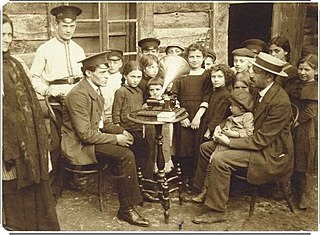 W
WSusman Kiselgof was a Russian-Jewish folksong collector and pedagogue associated with the Society for Jewish Folk Music in St. Petersburg. Like his contemprary Joel Engel, he conducted fieldwork in the Russian Empire to collect Jewish religious and secular music. Materials he collected were used in the compositions of such figures as Joseph Achron, Lev Pulver, and Alexander Krein.
 W
WH. Leivick was a Yiddish language writer, known for his 1921 "dramatic poem in eight scenes" The Golem. He also wrote many highly political, realistic plays, including "Shop." He adopted the pen name of Leivick to avoid being confused with Moyshe-Leyb Halpern, another prominent Yiddish poet.
 W
WIsidore Lillian was an actor, songwriter, playwright, and composer who was a leading figure in the New York Yiddish Theatre for the first half of the twentieth century. He wrote hundreds of songs for the theatre which were performed by such actors as Boris Thomashefsky, David Kessler and Jacob Adler, as well as by Lillian himself.
 W
WHenry Lynn was a film director, screenwriter, and producer, who concentrated on Yiddish life and culture in the United States, early twentieth century, (1932–1939), the era of Yiddish film in America. Lynn was an innovator in sound technology, frequently commissioned original music, and he used popular radio and opera stars Boris Thomashefsky, Esther Field, and Seymour Rechzeit, as well as New York stage actors like Celia Adler.
 W
WThe Monument-National is a historic Canadian theatre located at 1182 Saint Laurent Boulevard in Montreal, Quebec. With a capacity of over 1,600 seats, the venue was erected between 1891 and 1894 and was originally the cultural centre of the Saint-Jean-Baptiste Society.
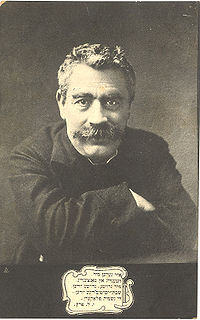 W
WIsaac Leib Peretz, also sometimes written Yitskhok Leybush Peretz was a Yiddish language author and playwright from Poland. Payson R. Stevens, Charles M. Levine, and Sol Steinmetz count him with Mendele Mokher Seforim and Sholem Aleichem as one of the three great classical Yiddish writers. Sol Liptzin wrote: "Yitzkhok Leibush Peretz was the great awakener of Yiddish-speaking Jewry and Sholom Aleichem its comforter.... Peretz aroused in his readers the will for self-emancipation, the will for resistance against the many humiliations to which they were being subjected."
 W
WJoseph Rumshinsky (1881–1956) was a Jewish composer born near Vilna, Lithuania. Along with Sholom Secunda, Alexander Olshanetsky and Abraham Ellstein, he is considered one of the "big four" composers and conductors of American Yiddish theater.
 W
WSholom Secunda was an American composer of Ukrainian-Jewish descent.
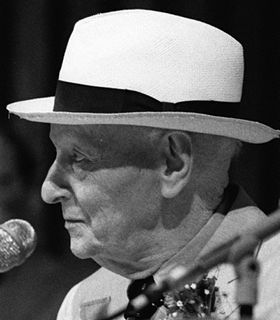 W
WShlemiel the First is a musical adaptation of the "Chelm" stories of Isaac Bashevis Singer about the supposedly wise men of that legendary town, and a fool named "Shlemiel". It was conceived and adapted by Robert Brustein, with lyrics by Arnold Weinstein and music based on traditional klezmer music and Yiddish theater songs by Hankus Netsky of the Klezmer Conservatory Band and Zalmen Mlotek, who wrote additional music and arrangements, and served as the musical director of the original production. Singer had written a non-musical theatrical adaptation of the stories which Brustein produced in 1974 when he was the artistic director of Yale Repertory Theater in New Haven, and this served to provide the basic material for the musical.
 W
WHersh Leib Sigheter (1829–1930), pen name of Hersh (Hirsch) Leib Gottlieb גוטליב was a Hungarian Jew from today's Sighetu Marmaţiei, Romania who, even before the advent of what is generally considered to be professional Yiddish theater, wrote satirical Yiddish-language Purim plays on an annual basis and hired boys to play in them. Although often objected to by rabbis, these plays were popular, and were performed not only on Purim but for as much as a week afterwards in various locations.
 W
WThe Standard Theatre is an inactive theatre in Toronto that originated as the city's main venue for Yiddish theatre, and later became the Victory Burlesque, which would be the last traditional burlesque theatre in Toronto when it closed in 1975. It is located at 285 Spadina Ave. the corner of Spadina Avenue and Dundas Street.
 W
WTeatrul Evreiesc de Stat in Bucharest, Romania is a theater specializing in Jewish-related plays. It is the oldest Yiddish-language theater with uninterrupted activity in the world. Its contemporary repertoire includes plays by Jewish authors, plays on Jewish topics, and plays in Yiddish. Many of the plays also feature Jewish actors.
 W
WHerman Wohl (1877–1936) was a Jewish–American composer.
 W
WYiddishpiel, is a Yiddish theatre in Tel Aviv, Israel. The theatre was established in 1987 at the initiative of former Tel Aviv mayor Shlomo Lahat and Chairman of Mercantile Discount Bank Moshe Noiderfer, as well as Shmuel Etsyon who partook in establishing the theater and served as its chairman and artistic director until November 2011, when he was replaced by Sasi Keshet.
 W
WBoaz Yungvits (Youngwitz), aka Bernard Young was a Polish actor.
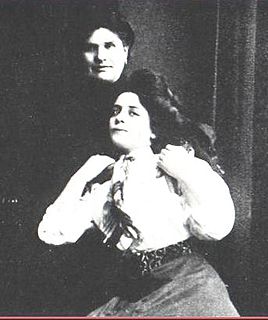 W
WClara Young was a Yiddish theatrical actor. Born to parents who loved the stage, she spent her early years in a home that housed rehearsals of traveling Yiddish theater troupes. After her father's death the family went to America, where she soon joined the Tantsman company and went to Boston, there to Zolotarevski's troupe in Montreal, thence to Toronto and to Morris Finkel's theater in Philadelphia.
 W
WVelvel Zbarjer, birth name Benjamin Wolf Ehrenkrantz, a Galician Jew, was a Brody singer. Following in the footsteps of Berl Broder, his "mini-melodramas in song" were precursors of Yiddish theater.
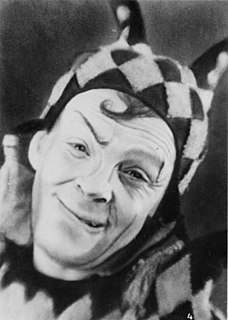 W
WBenjamin Zuskin was a Jewish actor and director in Moscow State Jewish Theater. Zuskin had a title of the People's actor of the Russian SFSR. He was a laureate of the Stalin Prize in 1946.